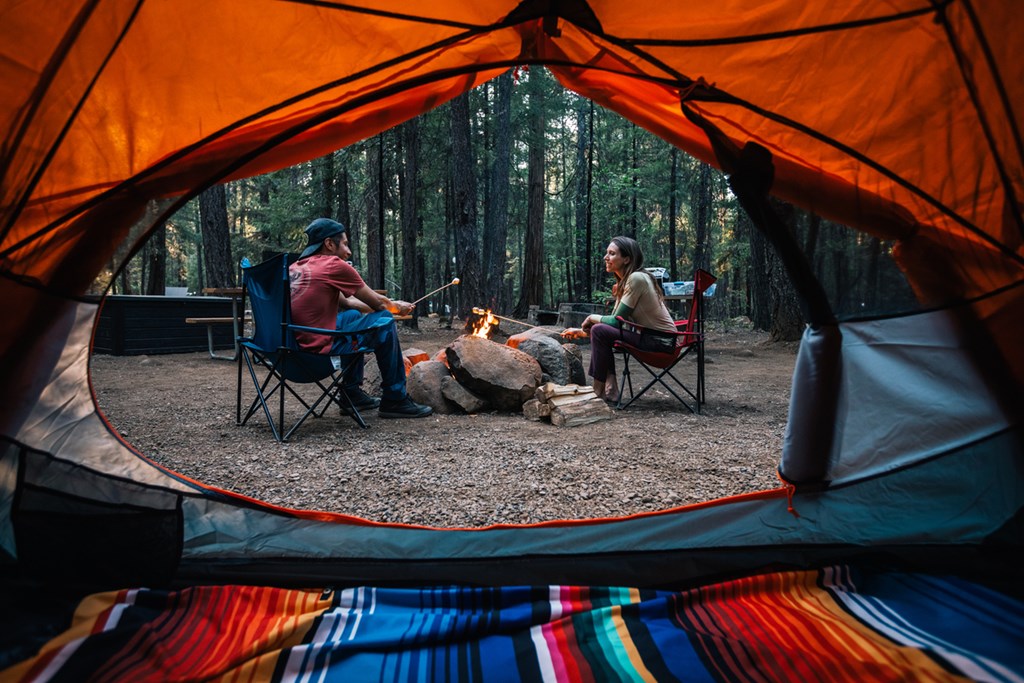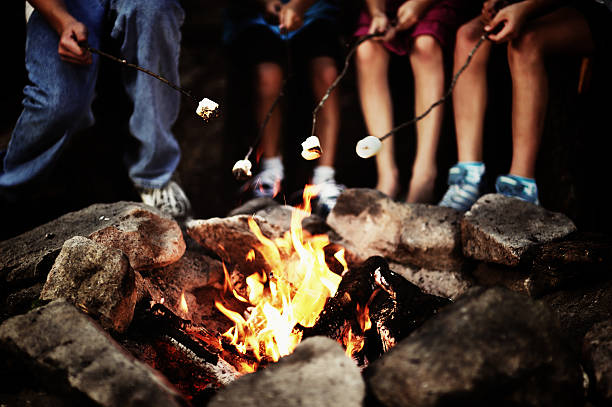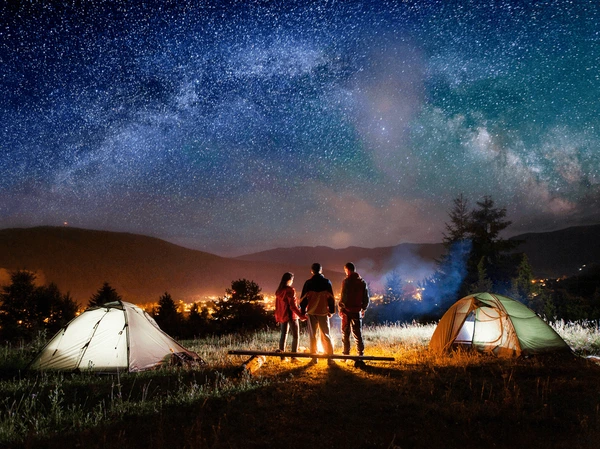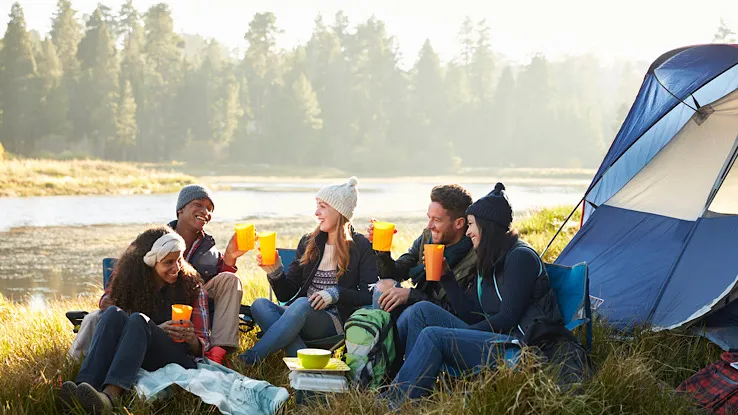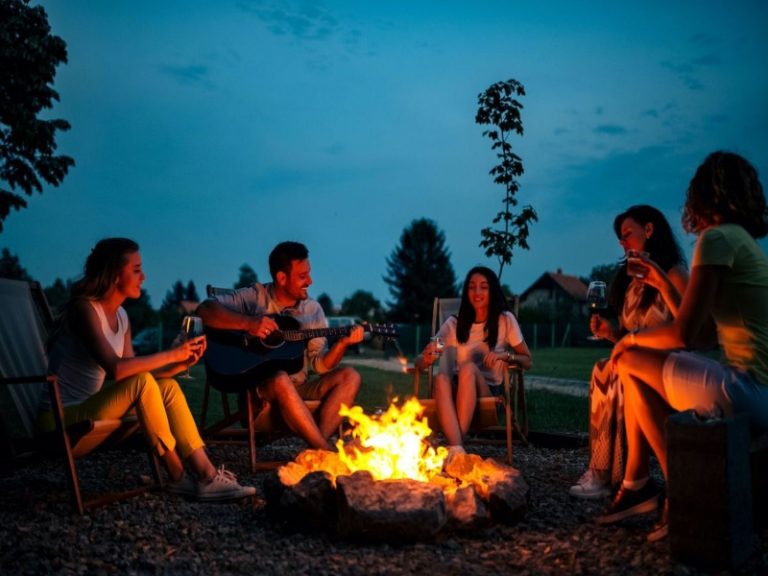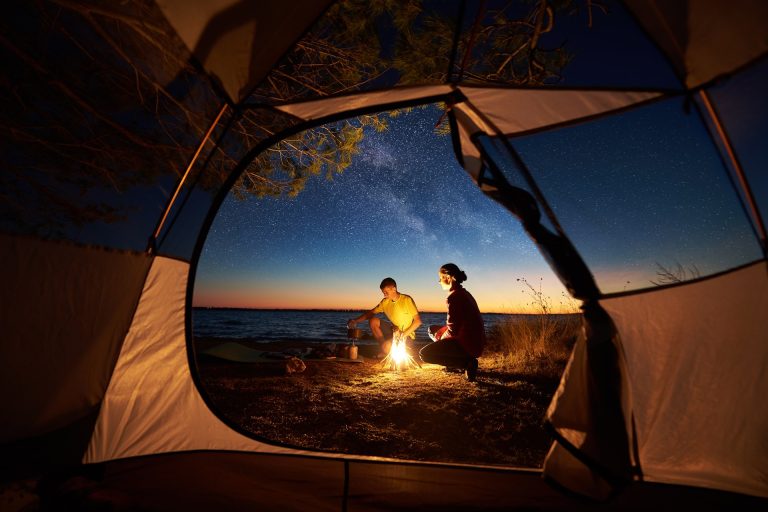Your Crucial 101 Guide to Taking on the Great Outdoors as a Novice Camper
There is no denying the allure of spending a night beneath the stars, surrounded by the sounds of nature, and the call of the wild is strong. Camping is a great way to get away from the daily grind, get back in touch with nature, and make lifelong memories with those you care about. For novices, however, the idea of going into the wilderness can be intimidating. Do not be alarmed, would-be explorers! With the help of this in-depth manual, “From Tent Pitching to Trail Tales: Your Essential 101 Guide to Conquering the Great Outdoors as a Camping Beginner!” you will be able to plan, prepare, and enjoy your first memorable camping vacation with confidence.
I. Why Embrace the Great Outdoors? The Allure of Camping
Before we dive into the nitty-gritty, let’s appreciate the magic of camping:
- Disconnect and Reconnect: Escape the digital deluge and reconnect with nature, yourself, and your companions.
- Stress Relief and Mental Well-being: The tranquility of nature has a proven calming effect, reducing stress and boosting mood.
- Physical Activity and Fresh Air: Hiking, setting up camp, and exploring your surroundings provide healthy exercise and invigorating fresh air.
- Affordable Adventure: Camping can be a budget-friendly way to experience new places and create lasting memories.
- Learn New Skills: From pitching a tent to building a fire, camping teaches valuable practical skills.
- Unforgettable Experiences: Stargazing, campfire stories, and waking up to the sounds of nature create unique and cherished memories.
II. Planning Your First Camping Trip: Laying the Foundation for Success
A well-planned trip is a happy trip. Here’s what beginners need to consider:
- Choose the Right Location:
- Beginner-Friendly Campgrounds: Look for established campgrounds with amenities like restrooms, potable water, and designated campsites. State and national parks often have excellent options.
- Ease of Access: Select a location that isn’t too far from home for your first trip. This reduces travel stress and allows for a quick exit if needed.
- Consider Your Interests: Do you want to be near a lake for swimming and fishing, in a forest for hiking, or with open views for stargazing?
- Check Campground Rules and Regulations: Be aware of fire restrictions, quiet hours, pet policies, and reservation requirements.
- Pick the Perfect Time:
- Weather is Key: Research the weather forecast for your chosen dates. Aim for pleasant temperatures and avoid extreme heat, cold, or heavy rain.
- Consider Crowds: Weekends and holidays are typically busier. If you prefer a quieter experience, consider camping during the week or the shoulder seasons (spring or fall).
- Daylight Hours: For your first trip, longer daylight hours can be beneficial for setting up camp and exploring.
- Make Reservations: Many popular campgrounds require reservations, especially during peak season. Book your campsite in advance to avoid disappointment.
III. Essential Camping Gear for Beginners: Equipping Yourself for Comfort and Safety
Having the right gear is crucial for a comfortable and safe camping experience. Here’s a basic checklist:
- Tent: Choose a tent that is appropriately sized for your group and easy to set up. Look for one with good ventilation and a rainfly. Practice setting it up in your backyard before your trip.
- Sleeping Bag: Select a sleeping bag with a temperature rating appropriate for the expected nighttime temperatures.
- Sleeping Pad: Provides insulation from the cold ground and adds comfort. Options range from inflatable pads to closed-cell foam pads.
- Camp Chairs: Essential for comfortable seating around the campfire or during meals.
- Camp Table: A small folding table is useful for preparing food and playing games.
- Cooking System:
- Camp Stove and Fuel: A portable camping stove is ideal for cooking meals. Practice using it before your trip.
- Cooking Utensils: Bring pots, pans, plates, bowls, cutlery, and cooking utensils.
- Cooler and Ice/Ice Packs: To keep food and drinks cold.
- Food Storage Containers: To protect food from pests.
- Lighting:
- Headlamps: Essential for hands-free lighting around the campsite. Bring extra batteries.
- Lantern: Provides ambient light for your campsite.
- Water Storage and Filtration:
- Water Bottles or Hydration Reservoir: Carry enough water for drinking and cooking.
- Water Filter or Purification Tablets: If you plan to access water from natural sources, know how to purify it.
- First-Aid Kit: A well-stocked first-aid kit is crucial for treating minor injuries. Include essentials like bandages, antiseptic wipes, pain relievers, and any personal medications.
- Navigation:
- Map and Compass (and know how to use them!): Even in established campgrounds, it’s good to have a basic understanding of navigation.
- GPS Device or Smartphone with Offline Maps: Can be helpful, but don’t rely solely on electronics.
- Fire Starting Supplies:
- Lighter or Waterproof Matches: Keep them in a waterproof container.
- Tinder: Dry leaves, small twigs, cotton balls with petroleum jelly, or commercial fire starters.
- Multi-Tool or Knife: Incredibly useful for various tasks around the campsite.
- Trash Bags: Pack it in, pack it out! Leave your campsite cleaner than you found it.
- Toiletries and Personal Items: Don’t forget essentials like toothbrush, toothpaste, soap, toilet paper, and hand sanitizer.
- Sunscreen and Insect Repellent: Protect yourself from the elements.
IV. Setting Up Camp: Creating Your Outdoor Haven
Once you arrive at your campsite, follow these steps for a smooth setup:
- Choose Your Tent Site Wisely: Look for a level spot free of rocks, roots, and standing water. Consider the direction of the wind and try to position your tent with the door facing away from it.
- Clear the Area: Remove any debris like pinecones, twigs, and sharp objects from your chosen tent site.
- Pitch Your Tent: Follow the manufacturer’s instructions carefully. Ensure all poles are securely in place and the rainfly is properly attached. Stake down your tent securely.
- Organize Your Campsite: Designate areas for cooking, sleeping, and gear storage. Keep food and scented items stored properly to avoid attracting animals.
- Set Up Your Sleeping Area: Place your sleeping pad inside your tent, followed by your sleeping bag.
V. Campfire Cooking: Delicious Meals in the Great Outdoors
Campfire cooking can be a highlight of your trip. Here are some tips:
- Check Fire Regulations: Be aware of any fire bans or restrictions in your area. Use designated fire rings or build a responsible campfire.
- Gather Firewood Safely: Collect dry twigs and branches from the ground. Never cut live trees.
- Build Your Fire: Start with tinder, gradually adding larger pieces of kindling and then firewood.
- Cook Over Embers: Once your fire has burned down to hot embers, it’s ideal for cooking.
- Keep Food Safe: Store perishable food in a cooler and cook it thoroughly. Wash your hands frequently.
- Clean Up Properly: Extinguish your campfire completely with water and stir the ashes until they are cold to the touch. Pack out all food scraps and trash.
VI. Safety in the Wilderness: Being Prepared for the Unexpected
While camping is generally safe, it’s important to be prepared for potential hazards:
- Wildlife Encounters: Learn about the wildlife in your area and how to avoid encounters. Store food properly to prevent attracting animals. Never feed wildlife.
- Weather Changes: Be prepared for sudden changes in weather. Have rain gear and extra layers available. Know your evacuation plan in case of severe weather.
- Navigation and Getting Lost: Stay on marked trails and carry a map and compass. If you do get lost, stay calm, stay put, and signal for help.
- First Aid: Be prepared to treat minor injuries. For serious emergencies, know how to call for help (cell service can be unreliable in some areas, so have a backup plan).
VII. Leaving No Trace: Respecting the Environment
As campers, we have a responsibility to protect the natural environments we enjoy:
- Pack Out All Trash: This cannot be stressed enough.
- Minimize Campfire Impacts: Use existing fire rings, keep fires small, and burn only dead and down wood.
- Respect Wildlife: Observe from a distance and never feed them.
- Leave What You Find: Don’t take souvenirs like rocks or plants.
- Minimize Your Impact: Stay on trails and avoid disturbing vegetation.
- Dispose of Waste Properly: Use designated restrooms or follow proper Leave No Trace guidelines for human waste disposal.
VIII. Making the Most of Your First Camping Trip:
- Relax and Enjoy: Embrace the peace and quiet of nature.
- Stargaze: Away from city lights, the night sky can be breathtaking.
- Listen to the Sounds of Nature: Enjoy the natural symphony of the outdoors.
- Tell Stories Around the Campfire: Share laughter and create memories.
- Take Photos: Capture the beauty of your surroundings.
- Be Present: Disconnect from technology and fully immerse yourself in the experience.
IX. Learning and Growing: Your Camping Journey Begins
Your first camping trip is just the beginning of a potentially lifelong love affair with the outdoors. Don’t be discouraged if things don’t go perfectly. Every trip is a learning experience. Reflect on what worked well and what you might do differently next time. With each camping adventure, you’ll gain confidence, skills, and a deeper appreciation for the natural world.
X. Welcome to the Tribe!
Congratulations on taking the first step towards becoming a camper! By following this essential guide, you’re well-equipped to embark on your first outdoor adventure with confidence and enthusiasm. Get ready to create unforgettable memories, breathe in the fresh air, and discover the incredible rewards of spending time in nature. Happy camping!

